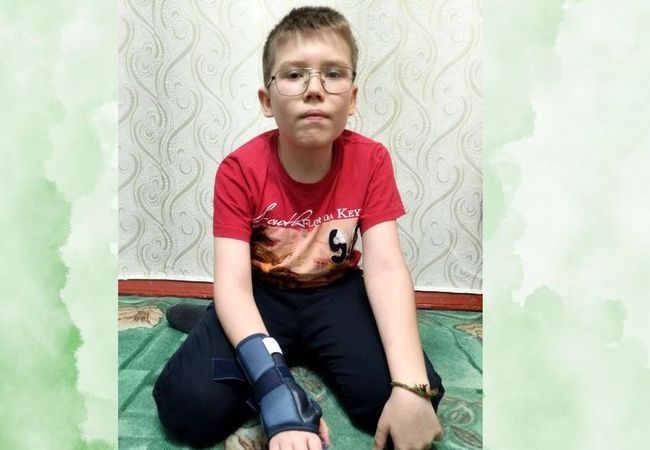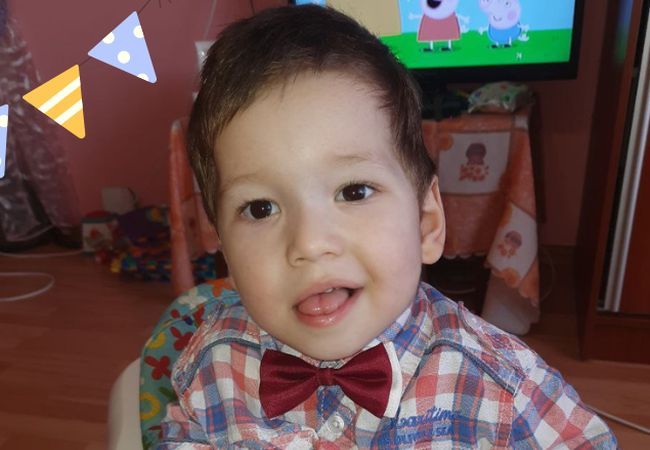
In our daily lives, we make choices constantly. We choose how to allocate the resources available to us – time, skills, money and anything else.
Knowing in your heart that you want to help people is a wonderful feeling. However, all of us would like to see the results of our help and feel that our efforts made a difference.
There are many ways to help others. Not all of them are equally effective.
We can give candy and stuffed toys to orphaned kids for New Year presents. Some wise kid will get the 15th present and exchange it for cigarettes in the street market. Someone will simply sell his or her present for pocket money. Orphans desperately want love and warmth of the family home… But we give them candy instead.
We have a choice! We can pool our resources and build a family style mini-orphanage for 10 children. The kids will get a mom and dad, who will buy them New Year presents from now on. We would no longer need to worry about the future of these children. And the problem would be solved!
Which of these options will you choose? Personally, I choose well thought-through actions, especially in philanthropy.
Intelligent philanthropy means gaining maximum return from each donation.
To meet this objective:
- We research the problem, find possible solutions, test these solutions and implement them in daily practice;
- Aim to eliminate the root cause of the problem, not only the consequences of the problem;
- Use charitable donations efficiently and wisely;
- Prioritize resources (help those who need it most right now);
- Consolidate donations, pool many small gifts to reach one large and important goal;
- Fight fraud (verify all information, work with reputable funds only);
- Use modern information technology (site analytics, automated reporting, Web 2.0).
What hinders intelligent philanthropy?
1. The wish for immediate gratification. If you buy a TV set for an orphanage – you can take a picture of the kids watching it right away!
2. Poor understanding of the root cause of a problem. Eliminating the symptoms instead of fighting the disease. We give small change to a mother begging in the street with two small children in tow, instead of helping her to find a permanent place to live, work, etc.
3. Lack of information about the beneficiaries of charitable giving. A donation to an orphanage/hospital may be misaligned with their real needs. The current gift may be not needed, while some desperately needed items may never arrive.
4. Stereotypes and misplaced priorities. Donations are typically directed to the institutions (e.g. orphanages), while families with many kids living in poverty never get any help. Hospitals typically get much less help than orphanages do.
5. Lack of cooperation among the donors. As a result, only small items that each donor can individually afford are purchased. A typical situation is when many toys and small gifts are bought for an orphanage, while no one can afford a badly needed large-ticket item.
How can charitable funds and organizations make philanthropy more intelligent?
1. Dedicate more efforts to identifying the root causes of the problem, and as a result develop, test and implement effective solutions.
2. Build trust in charitable giving by transparent financial reporting.
3. Develop professional staff and level of organizational management.
4. Communicate the need for financing “intelligent” projects.
It is critically important to create a database of healthcare facilities, pre-school homes and schools for orphans, poor families with a large number of children, their current resources, degree of financial transparency, their financial and other needs.
A sample information card for an institutional beneficiary of charitable giving might look like this:
Boarding school #:
Number of students:
Including number of orphans:
Total previous year funding:
Personnel and administrative costs:
Facilities repair costs: Food: Utilities:
Own transportation, a computer classroom
Current essential needs:
School’s evaluation from the director: Evaluation from the teachers: Evaluation from the students:
Independent evaluation of the management’s professional performance: rating 1-5
Overall level of management of the institution:
Sometimes a careful assessment of needs of an institution reveals that an inefficient heating system consumes 100,000 hryvnyas (approx. $12,500) or 800 hryvnyas ($100) for each child per month. At other times, costs for renovation or purchases of office equipment become excessive. (For example, one of the hospitals was seeking 4,500 hryvnyas ($560) for its accounting department’s computer budget; the charitable fund was able to find an equivalent computer costing only 2,700 hryvnyas ($340)).
Solutions for these issues: audit, assessment of the heating system; transition to a more efficient heating system; public oversight of the renovation funding, transparency of the institutional financing.
A sample information card for a family in need of assistance might look like this:
Number of family members:
Family composition:
Number of children:
Number of children younger than 18:
Total family income:
Income per family member:
Employment:
Parents’ educational level:
Any history of abuse or dependency issues:
Parents’ skills and experience:
Current financial needs of the family (listing and amounts):
Feedback from neighbors, teachers, social services about the family:
Family’s desire to assist as volunteers to the charitable fund or other families.
Based on the systematically gathered information about potential recipients of charitable help we can develop priorities for charitable giving. Sailors that paint the ship’s deck while the water is coming in from a gash below deck look doomed. The same can be said about well-meaning donors that help with minor issues while being ignorant about the top priorities of the needy.
How can you or your company/organization donate more intelligently?
1. Avoid direct donations to an institution. Find and work with reputable and transparent charitable organizations.
2. Thoroughly verify all requests for help. Seek advice of independent experts and funds that can verify this information.
3. Donate not only for specific needs, but also for projects that research and seek systematic solutions to those needs.
4. Do not donate for the sake of PR or personal ambitions.
Finally, let’s not try to turn into robots calculating return on every charitably invested penny. Sometimes logic does not help and you should simply trust your heart and intuition.



